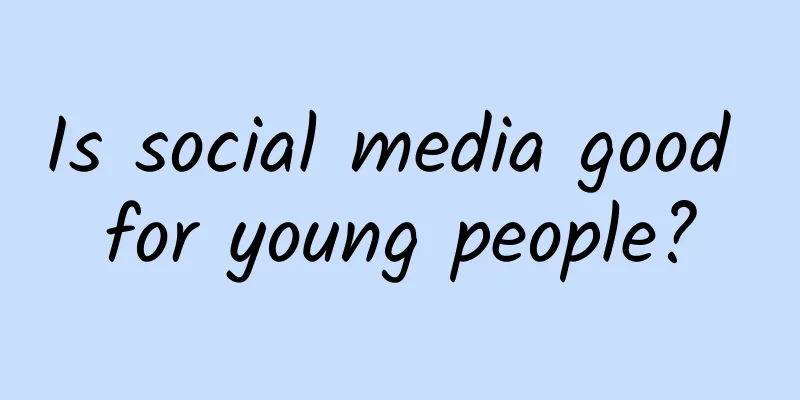Is social media good for young people?

|
If whether social media is good or bad is a difficult question to answer, then the more anxious and scientifically researched question is: Is social media good or bad for young people? Barely a day goes by without a new report detailing the “extreme” use of social media by a generation that the Kaiser Family Foundation, a health policy think tank, has nicknamed M2: Children whose lives revolve around media. A 2010 Kaiser Foundation report examining media in the lives of 8-18 year olds sparked a wave of anxiety about the amount of media young people consume, with social media being the newest and fastest growing. In 2011, the Nielsen Company found that teens spend 7-12 hours a day consuming media, with social networks being the most visited sites on the internet. And in 2014, Browser Media, Socialnomics, and MacWorld all found that nearly a quarter of teens log on to Facebook more than 10 times a day. Research is slowly but surely confirming what we knew to be true: young people love social media. The American Academy of Pediatrics' Social Media Council, established in 2007 to study the phenomenon, acknowledges that social media platforms are uniquely linked in some way to nearly every health concern pediatricians have about young people (body image, learning disabilities, sexual behavior, aggression, etc.). But the council itself calls its work on social media's impact on young minds "an uncontrolled experiment." Uncontrolled experiments often provide inconclusive results. Because definitive statements cannot be made about the psychological and physiological effects of social media, their work in this area has focused on encouraging "healthy use" and urging parents to monitor their children for common behavioral problems, such as cyberbullying and exposure to inappropriate content. While we do have some understanding of how the brain processes information and how humans crave certain connections, there are few morally objective, conclusive, or helpful results on the effects of new media on the brain. Behavioral science has a long way to go to truly understand the effects of social media on young minds and whether social media is "good" or "bad." However, that hasn't stopped media outlets, parents, and governments around the world from asking the question. Is it possible that these questions are asked not only out of intellectual curiosity but also out of cultural fear? In a world where most social systems involve some form of domination or paternalism, limiting the power of young people seems to be a universally shared value. Whether out of protection and love or oppression and control, social groups try to constrain young people's behavior. Any tool that rapidly increases the power of young people is almost always seen as inherently dangerous. Therefore, social media is as scary as it can be. There is a lot of panic about what the power young people are gaining through social media means personally, economically, and politically. On a personal level, there are countless examples of young people using social media in ways that reveal their emotional and psychological immaturity, even to the detriment of themselves and others. Economically, young people have direct access to brands, making them more powerful consumers, but also making them more vulnerable to corporate propaganda and excesses. A key phrase that has emerged in many of the biggest political moments in recent years, from the Obama election to the Arab Spring, is the power that young people exercise using social media. In this space between empowerment and protection, between freedom and restraint, lies the best questions about social media and young people. In each of these contexts there are many opportunities and risks. The challenge for society as a whole, then, is to hone its ability to effectively assess, based on currently available information, which constraints and limits are necessary for the healthy growth and development of young people and social media, and which ones are enacted to maintain unnecessary and sometimes negative systems of control. These are difficult questions that those outside the scientific community must grapple with. As for the scientific community, the jury is still out on whether there is a measurable net gain or loss in the development of young people’s brains, behaviors, and life skills as a result of social media, and it will be undecided for a long time. But what we do know is that more power has a huge impact not only on their young minds, but also on the world they live in. ——————————————————————— Author: Eric Williams Simon is CEO and social impact strategist at EWS Strategies and a member of the Social Media Global Agenda Council. She also runs Upworthy.com. |
<<: Mobile User Consumption Behavior and Trends in 2012 – Data Infographic
>>: If your organs could talk, how would you be scolded every day?
Recommend
How many days can the test strip detect pregnancy
How many days can the test strip detect pregnancy...
After the age of 50, the incidence of osteoporosis in women is more than 5 times that in men! One minute to check if you are a "high-risk group"
Today (October 20) is the 27th World Osteoporosis...
Will staying up late for a long time affect menstruation?
As the pace of life quickens, people's work p...
Bleeding again after menstruation is over. Is this a blessing in disguise?
Generally speaking, menstruation lasts about thre...
Female urethral pain after urination
With the improvement of women's self-awarenes...
【Health Science】Don’t touch! Don’t eat! Urgent reminder
March It’s spring and flowers are blooming When e...
How much weight is normal during the fifth month of pregnancy
Weight gain during pregnancy has always been a to...
What are the basic ingredients of a milkshake? How to drink a milkshake
In our daily diet, milkshakes are very nutritious...
How to clean your vagina with baking soda
Female friends who have vaginitis or candidal vag...
Is it okay to have sex when menstruation just started?
Women's menstruation is mainly for metabolism...
Breast enhancement massage method for adolescent girls
Girls all hope to have a proud bust and hope that...
Elderly people suffer from chronic constipation? It turns out that calcium supplementation is to blame
As we age, the rate of calcium loss in the human ...
How to treat mild cervical erosion
Cervical erosion is a common disease in women, an...
What is the cause of abdominal pain and bloody vaginal discharge?
Some women experience abdominal pain and bloody v...
What should pregnant women do if they need a health certificate?
The health certificate is generally applied for i...







![[2023 "China Science Popularization Youth Star Creation Competition"] Don't let your pillow ruin you, protect your cervical spine scientifically and reasonably!](/upload/images/67f180a35291b.webp)

